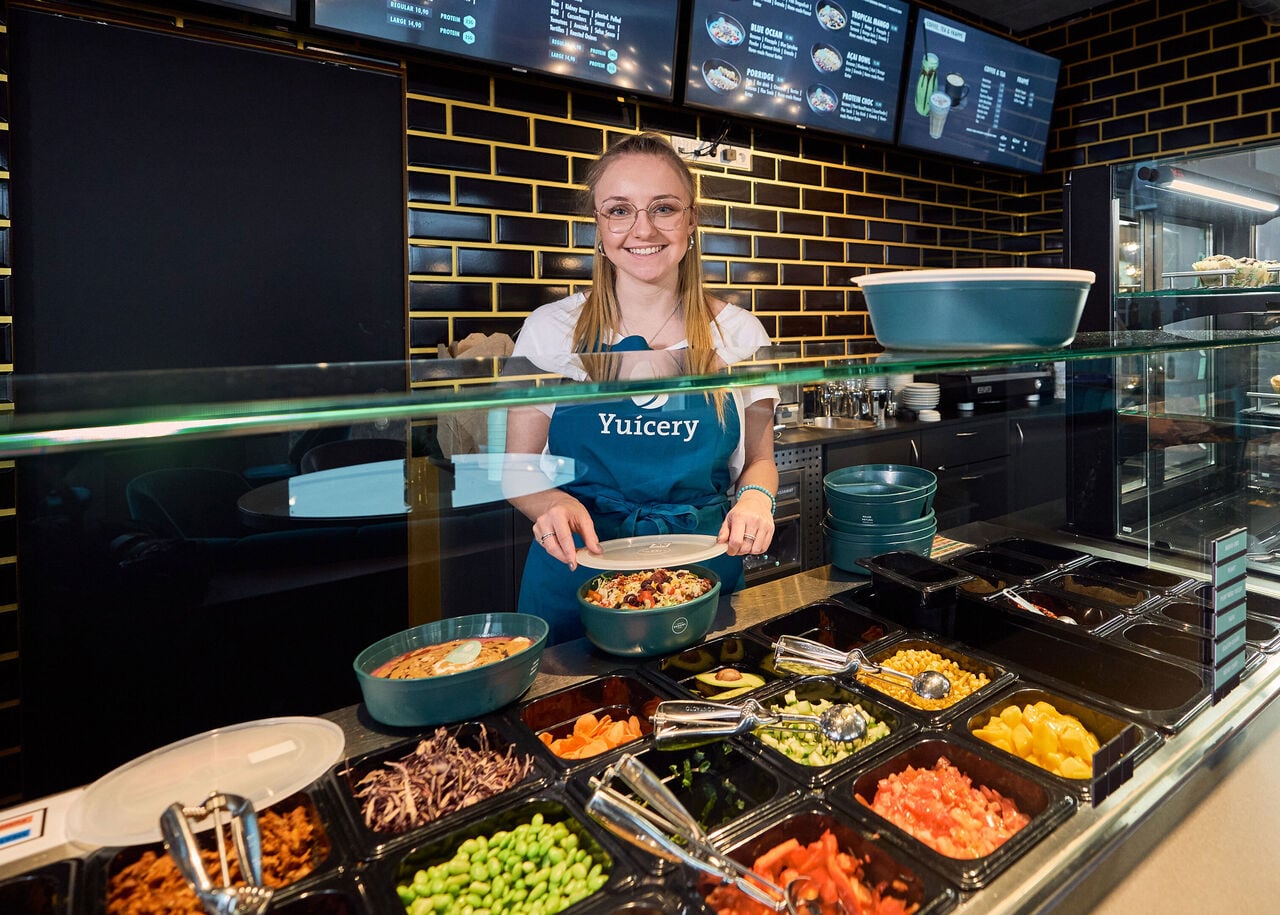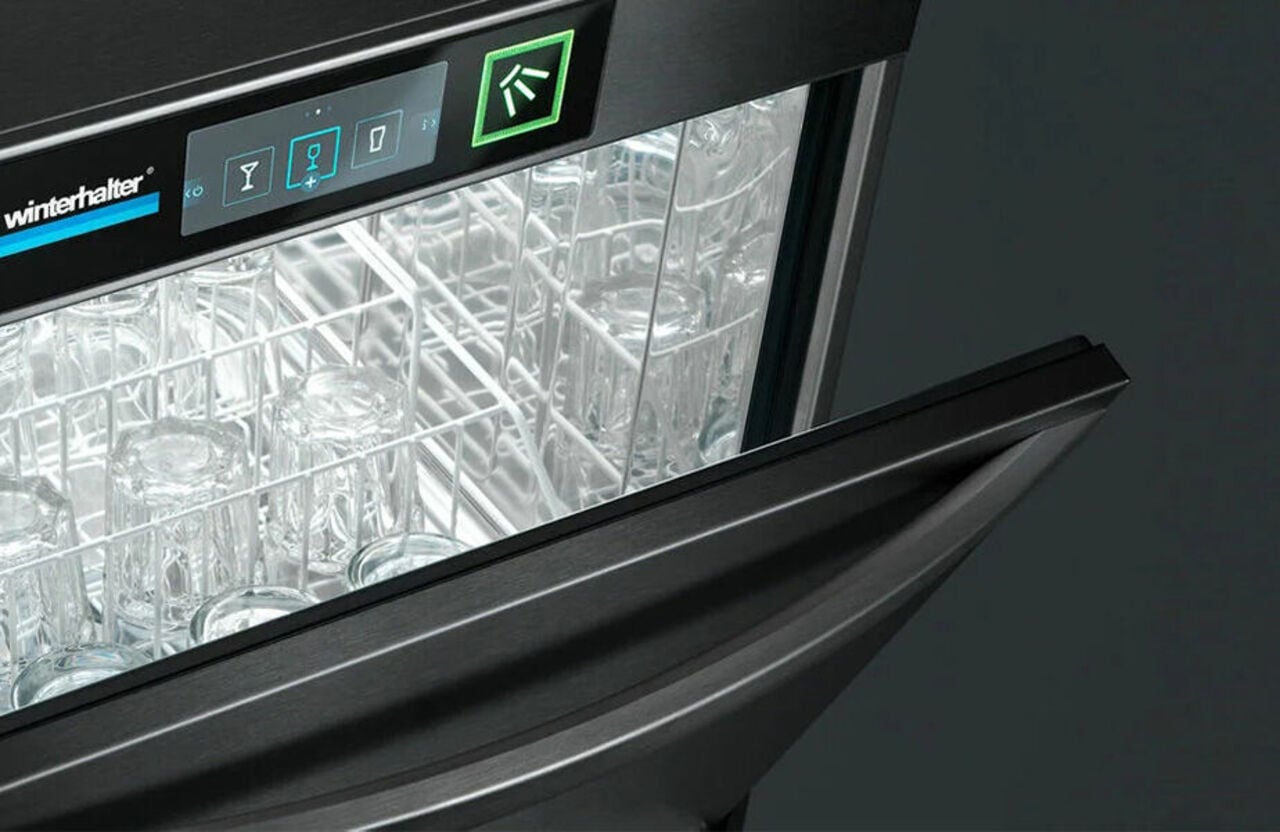
Staff shortages in the foodservice industry – how to find employees!
The foodservice industry has a staffing problem. It is becoming increasingly difficult to find employees to work in the kitchen, behind the bar or as waiting staff. And as a result, it is also becoming more and more difficult to do effective human resources planning. This situation is not new, but it has become much worse since the coronavirus pandemic. So much so that a number of restaurants have had to close down because of it. This article explains the causes of the shortage of skilled workers in the foodservice industry, how to find temporary and qualified staff and how to retain good employees in your restaurant or foodservice business.
1 Staff shortages in the foodservice industry
Things were different in the past. For a long time, the foodservice industry was considered to be secure and was the first choice for many job seekers – even though working conditions and pay were not ideal. Today, the staffing situation and the planning of staffing requirements is one of the biggest challenges in the foodservice industry. Desperate attempts are being made to recruit staff and to meet staffing needs. Many employees and skilled workers have turned their backs on the foodservice industry and have moved to more secure sectors. Only a few want to return because the industry has become too insecure, the wages too low and the working hours unattractive. A situation with dramatic consequences.
2 The consequences of staff shortages
3 Reasons for staff shortages in the foodservice industry
In restaurants and bars, pubs, cafés, clubs and hotels, there is an acute shortage of labour throughout the foodservice industry. According to surveys, more than half of all foodservice businesses are deeply concerned. The seriousness of the situation is demonstrated by statements such as “Finding a good chef is like winning the lottery!” or“Finding good staff will be a bigger challenge in the future than finding new guests”. How did this situation arise? Here are the most important reasons and causes.
1. Payment
Minimum wage or less. Unpaid overtime. No holiday pay and no Christmas bonus. The foodservice industry has a reputation for being a “low-income industry”. More often than in other sectors, gross earnings are below the low-income threshold. Only a small proportion of jobs are covered by collective agreements and are paid at least the minimum wage. It’s no wonder that many employees in the foodservice sector in Germany migrate to the tourist centres of Switzerland or Austria. The earnings there are often twice as high. But changes are taking place. The new collective agreements provide for significant increases in all wage groups as well as for apprentices and also take into account the increase in the statutory minimum wage.
2. No employment contract or a fixed-term contract
Employment relationships in which verbal agreements are made and wages are paid in cash. Pseudo self-employment and fixed-term employment contracts. Or a part-time job with few hours, where countless hours are added as overtime and then paid cash in hand. Some would say, “Typical restaurateur!” Many job seekers say, “No, thank you!”
Besides, from a purely legal point of view, verbal employment contracts are just as effective as written ones – if the most important regulations have been agreed upon and provided they are not fixed-term employment contracts. However, to avoid ambiguities and misunderstandings, it is advisable to request a written contract.
In any case, the employer is obliged to hand over to the employee no later than one month after the start of the employment relationship a written document setting out the main provisions of the employment. However, this is not a formal employment contract.
3. The tip factor
In Asia, tipping is often frowned upon or taken as an insult. For German waiting staff, it is an important part of their monthly income. This is because an acceptable income is often only achieved when the recommended 5 to 10 percent tip is added to the regular wage. The problem is that as people are paying increasingly by card, there is less opportunity to leave a tip.
Clearly, tipping is a matter between guests and employees. They are independent of wages and may neither be withheld by the employer nor deducted from wages. Staff do not have to be taxed on tips that come voluntarily from guests and are not part of the employment contract.
4. Unattractive working hours
Working hours in the foodservice industry are “special” and not particularly attractive to many. Working hours often include times when others are enjoying their evenings, are out with friends or on holiday. Regularly working late at night, at weekends and during public holidays – often on call – makes it difficult to strike a good work-life balance and puts many job seekers off.
5. Unfavourable working conditions
Compared to other industries, the working environment in the foodservice industry can be rather challenging. Noise and a hectic pace in the guest area. Harsh and informal language in the kitchen. Heat from the cooker and warewasher. Pressure and stress because staff shortages have to be compensated for by overtime. And of course, you’re on your feet all day. It’s no wonder that slipped discs and tendinitis are among the typical occupational hazards in the foodservice industry. In the worst case, boundaries are also crossed – for example, when guests sexually harass staff because they are under the influence of alcohol and their inhibitions are reduced.
6. Precarious future
Since the coronavirus pandemic, the foodservice industry has suffered the stigma of being a precarious sector in crisis. Businesses have fallen on hard times, both economically and in terms of personnel. A lack of planning, an unclear future and a lack of reliable prospects, together with short-hours work and loss of income, have led to a sharp decline in the number of employees and trainees. Now the industry is facing a structural problem for the future. All this, of course, doesn’t make working in the foodservice industry palatable to job seekers.
7. Lots of part-time jobs
As in some other sectors, a large proportion of employees in the foodservice industry in Germany traditionally work as mini jobbers. This is important because it gives companies the flexibility they require and, as an attractive employment model, prevents a migration into undeclared work. However, we know from past experience that marginal employment also has its disadvantages in times of crisis. as such workers are not subject to compulsory insurance under the unemployment insurance scheme, restaurateurs cannot apply for short-time allowance in order to keep them in permanent employment. Some job seekers therefore prefer another form of employment (e.g. a “midi-job” or part-time employment).
8. Lack of appreciation
There’s one thing that foodservice industry employees can all agree on – they feel underappreciated. Employers, guests and society don’t show enough appreciation and respect for their work – and they aren’t taken seriously. This is all the more problematic because working in the foodservice industry is quite challenging and relies on the passion, commitment and positive attitude of individuals. Many perceive this as an imbalance and switch to a professional field where they feel they receive more recognition.
9. Not a good image
Low wages, unpaid overtime, unsociable working hours. In addition, poor quality of training and a high drop-out rate among trainees. Plus various other factors. All of this adds up and means that the “foodservice” sector generally has a fairly bad reputation among employees.
4 No-go’s as far as employees are concerned

5 9 tips for successful recruitment
Cooks, waiting staff, kitchen assistants, kitchen porters. Foodservice is an industry that functions with people. And these people want to be seen as human beings – not as a work factor. The basic prerequisite for successful recruitment is showing an interest in your employees and both sides having a human and appreciative approach towards one another. This includes, for example, praising employees when they have done something exceptional. Or thanking them for their dedication and commitment. And if you find out that employees are still working in other jobs as well, ask what their current family and financial situation is – maybe you can find a good solution together. If you show your employees honest interest, recognition and appreciation, you will have already gained important plus points as far as job applicants are concerned. The following nine tips show what else is important.
1. A great place to work
As is so often the case, in the foodservice industry: it's the whole package that counts. TIP: Make your company an attractive place to work and make yourself an attractive employer to work for. Create the conditions so that your staff really enjoy working for you. This includes fair wages, flexible working hours, good working conditions and compliance with legal regulations. Implement a modern and ergonomic working environment – with professional technology that relieves your employees of physically strenuous work. Use the possibilities of digitalisation to simplify administrative tasks. And if the housing market in your region is very competitive, offering employee housing can be a major benefit for applicants. All this spreads, ensures positive feedback on review websites and will certainly simplify your recruitment process!

2. Fair pay
Foodservice is an industry where earning opportunities are rather limited. To have a chance on the highly competitive labour market, an increase in the wage level is inevitable. TIP: If possible, pay your employees more than the minimum wage. And use night-shift supplements and holiday bonuses for example, to make the job financially attractive to potential applicants. Of course, this is not easy, as the foodservice industry has recently gone through its worst crisis ever. And of course, we also have to consider price increases, some of which are long overdue. But your guests won’t disagree with you either: at the end of the day, appreciation goes hand in hand with fair and adequate pay.

3. Work-life balance
A topic that other industries have been dealing with for a long time has now also reached the foodservice industry – the 4-day week. Restaurants and hotels have already introduced it and hope that it will become a “gamechanger” for staff recruitment. What is behind this is the growing desire of many employees to have sufficient leisure time and a better work-life balance. The 4-day week is just one example of many. Ultimately, it is a matter of finding working time models that are better geared to the employees – and at the same time taking into account the personnel and seasonal requirements of the company. TIP: Address the issue of “Work-life balance” and ask your employees what they want. Is it a 4-day week with 10 working hours a day, or a 6-day week with maybe 6 hours a day? Or perhaps an entirely different model? Find out and get ahead as an employer!

“There are people who like nothing better than working in the foodservice business – they like looking after guests and going above and beyond As foodservice businesses, we should be creating the conditions to encourage more of them to work in the industry!”
[Quote from a restaurateur]
4. Permanent instead of temporary employees
Permanent employees have a few distinct advantages over temporary staff – they are generally more satisfied, more motivated and more closely connected to the company. This raises the question of whether a few good permanent employees would be better than a large pool of temporary workers – including from a business management perspective. Because one thing is for certain – guests notice the difference quite quickly. TIP: Check to see whether a small but strong team of permanent employees would bring more advantages in the long term than a large pool of temporary staff.

5. Good training
Employees who know what they are doing and what they are talking about are worth their weight in gold to you and your guests. However, this isn’t just plucked out of thin air. Besides personal qualifications, it’s a question of training. In a sector where many employees are low-skilled and/or have a migration background, training is key. TIP: Ensure quality right from the start and give new employees enough time for training so that they get to know the business and have security and routine – whether they’re preparing a cappuccino or working with the warewasher. Good onboarding pays off in the long run!

6. Further development and prospects
A relatively high employee turnover rate is characteristic of the foodservice sector. There is a remedy for this. If employees are able to develop personally and professionally, they enjoy working in a company – and remain there. TIP: Promote your employees according to their skills and professional aspirations. Offer further education opportunities and use foodservice academies, for example, to increase your employees’ qualifications and to connect them as closely as possible to your company. Equally important: Offer prospects! For example, by expanding areas of responsibility, gradually transferring more responsibility and creating opportunities for promotion – perhaps even to the point of a partnership role. You should not see all these personnel development measures as a short-term economic investment. But always as an investment in long-term cooperation.

7. Strong sense of unity
Working in the foodservice industry means working in a team. Follow the mantra “Together we want to offer our guests an extraordinary experience!” – regardless of whether someone works as kitchen staff, waiting staff or cleaning and dishwashing staff. The more united the team is, the better the result. TIP: Promote team spirit and create a strong sense of belonging! For example, by expressly praising the team – for their special commitment or for a particular busy evening when you may have had an especially high turnover. If you have problems with guests, stand behind your employees and back them up. Last, but not least, celebrate the big and small successes with your team!

8. Setting the course together
No one knows the company and the business better than its own employees. What could be more obvious than using this potential and involving staff in growing the company? TIP: Sit down with your team at least once a year to discuss suggestions for improvement, develop new offers and exchange information about current market trends. For example, topics such as sustainability, digitalisation, take-aways or vegan food. Not only will you come up with lots of interesting ideas – you will involve your employees in the company, show your appreciation and inspire them to take on more responsibility.

9. Using technology
Employees expect employers to use modern capabilities to make work as healthy, ergonomic and easy as possible. Keywords: Digitalisation, automation, artificial intelligence, robotics, IoT etc. TIP: Check which equipment and applications you can use to free your staff from heavy, dangerous, dirty and monotonous work. It’s not a question of a warewasher completely replacing a human, for example. Humans will continue to be required. It’s about supporting the staff, making things easier for them and making the activities as pleasant as possible.

Excuse me, AI colleagues
Robots – they take orders, serve food on plates and clear them away again or clean and disinfect. Could they be a way out of the staff shortage in the foodservice industry? Besides the acquisition costs, which are still high, machines do monotonous work better, faster and more efficiently. And where heavy loads have to be transported over long distances, they relieve the staff of strenuous work. However, in the foodservice industry in particular, robots cannot completely replace humans. Guests want to be welcomed and advised. They want to have a pleasant conversation and be smiled at in a friendly manner. It is unlikely that robotic waiting staff will solve the staffing crisis in the foodservice industry. But they can support and relieve foodservice staff in certain areas. And perhaps make the workplace a little more attractive.














